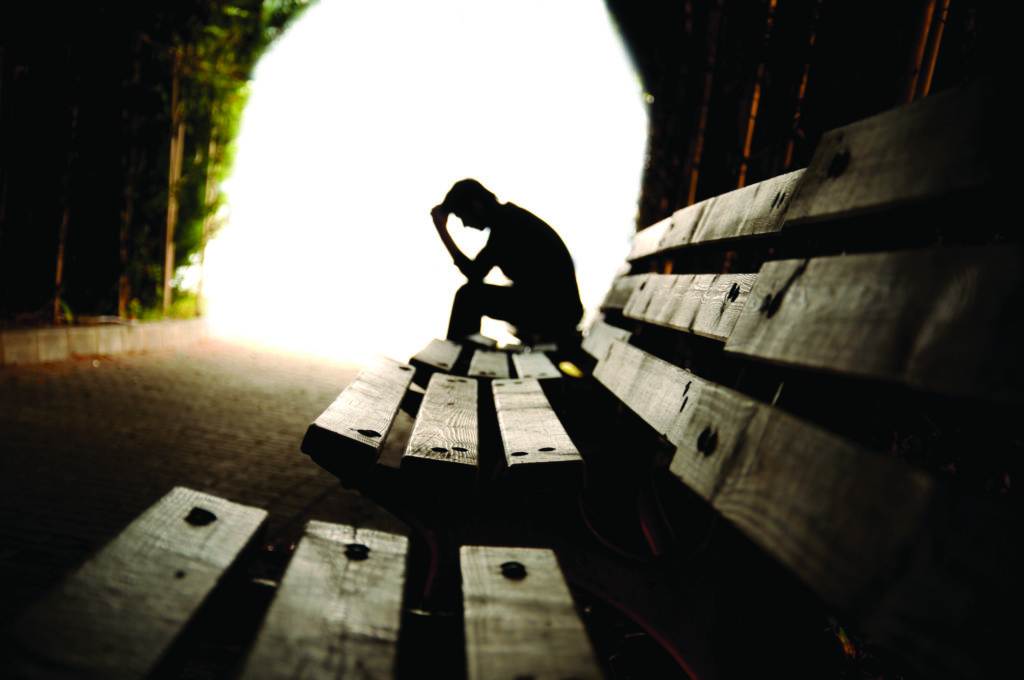Spiritual Education
for Adolescents
BY URANA JACKSON
Our young people are not faring well. According to the Department of Health and Human Services, more than three million adolescents age 12–17 reported at least one major depressive episode in the past year, and more than two million reported severe depression that impeded their daily functioning. In November, the journal Pediatrics published a study on national trends in depression among adolescents and young adults that found that the prevalence among teens jumped 37% between 2005 and 2014.
Unfortunately, many parents and mainstream educators are not wholly equipped to tackle this growing epidemic, partially due to a lack of resources and partially due to not knowing why such a significant rise in hopelessness is occurring among our youth. Some believe these mental health issues may be due, in part, to the rising significance of social media, with its outward orientation and amplification of violence and tragedy. Others theorize that the increased push to perform from schools and parents causes burnout and desperation. America’s youth are absorbers and reflectors of the culture, and given the current sociopolitical climate, they need some armor.
We must continue to seek out antidotes to the nihilism and hopelessness that some adolescents are facing—something that orients them toward mutuality, compassion, and a deep value for life, that connects them to powerful inner and outer resources. One antidote rarely presented in mainstream youth development and education is spiritual development.
Because the term spirituality carries so much ambiguity and stigma, let’s say that spirituality is an awareness of, a search for, and a relationship with something greater than oneself—something sacred. For some, a principle of love or justice; for others, the spirit inherent in the natural world. Some may perceive it as an indefinable universal presence and others as a specific divine principle from one of the numerous spiritual and religious traditions. Spirituality is subjective—perhaps something more experiential than intellectual—and it speaks to something that transcends the secular.

Developmentally, adolescence is a crucial stage for spiritual exploration. It is during adolescence that the mind first begins to open to abstract thinking, and thus, teenagers begin to perceive the world from a larger, more sophisticated lens, which can be both illuminating and grounding. The benefits are further revealed in a number of studies that have linked an adolescent’s connection with spiritual concepts and involvement with moral development, emotional regulation, life satisfaction, prosocial behaviors, and successful transition to adulthood.
Most notably, Dr. Lisa Miller, a psychologist and professor from Columbia University, conducted a 15-year study on the effects of a personal spirituality on adolescent youth, and her conclusions were stunning. Adolescents with a personal spirituality were 80% less likely to experience ongoing depression, 70% less likely to have unprotected sex, and 50% less likely to abuse drugs or alcohol. She found that having a personal spirituality is four times more protective than education or social class. A spiritual education may begin with an inner exploration of the multilayered nature of individual identity. Young people would learn about the connection between their thoughts and feelings, and in learning how both both inform one’s experience of “reality,” they can be guided on how to have more agency within their experiences. They would be given tools and opportunities to be in deeper relationship with others. Young people would be given channels to direct their talent, interest, anger, and compassion to contribute to something greater than themselves.
They could be exposed to mindful awareness, gratitude practices, communing with nature, and honoring their ancestors. They could learn to access their intuition and learn diverse concepts and principles from the lexicon of spiritual and philosophical traditions. Thus, a spiritual education would begin with an exploration of the self and move outward to others, to humanity, to the natural and unseen world. This is not an abstraction. I have done this successfully for over 10 years in the public school system, without violating any First Amendment rights or garnering complaints from parents. Perhaps only some initial skepticism from overly precocious teenagers who think they already know everything.
In their preteen and adolescent years the protective veil of childhood is lifted, and soon these neophytes are penetrated by their surroundings. It is no wonder teenagers are so cynical—the childhood curtain is lifted, and what we have to offer is Snapchat and the Kardashians, mingled with the complexities of racial injustice and the perils of cyberbullying. I imagine some part of them is crying out, “This is it?!”
Furthermore, in our fear of religious indoctrination and ephemeral agendas—and perhaps because of the discomfort that we adults face when we don’t truly know the answer to youth’s larger existential questions—we keep a “neutral” stance and assume young people will begin their search for their truth and meaning when they are adults. Meanwhile, adults criticize adolescent materialistic priorities, their lack of empathy, and their disconnection from anything meaningful. Adults are terrified by the epidemic of depression and hopelessness devouring some of our youth. We must then offer them something more: a holistic education that arms them with powerful tools and insights, and offers a paradigm reflective of the truly extraordinary journey and responsibility of what it is to be human.
Urana Jackson is a psychotherapist and author of Girls Rising: A Guide to Nurturing a Confident and Soulful Adolescent (Parallax Press, 2016). She conducts workshops on integrating spirituality into youth development and leads groups for adolescent girls in Napa and Oakland. UranaJackson.com